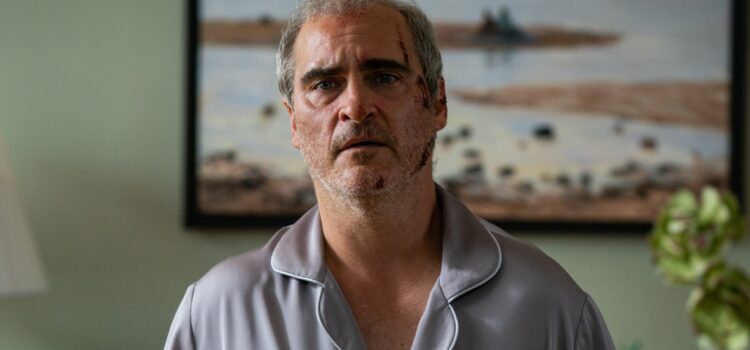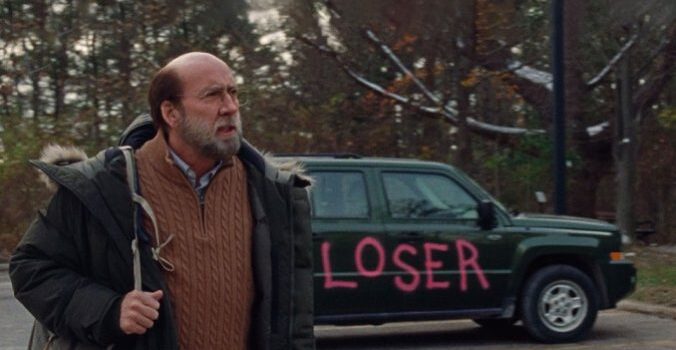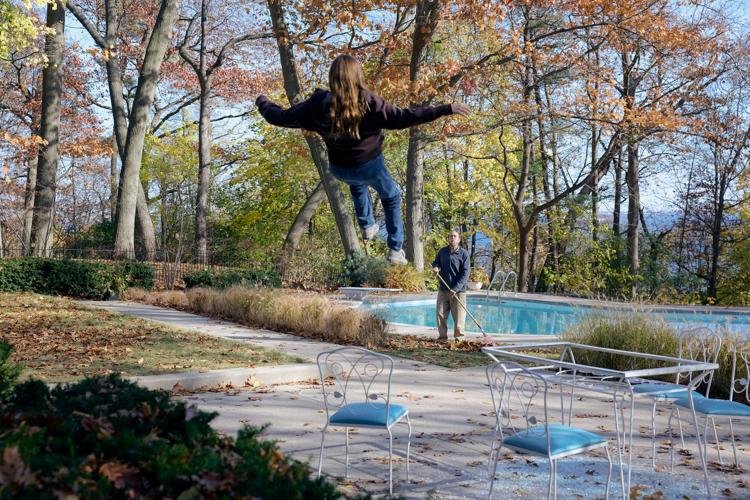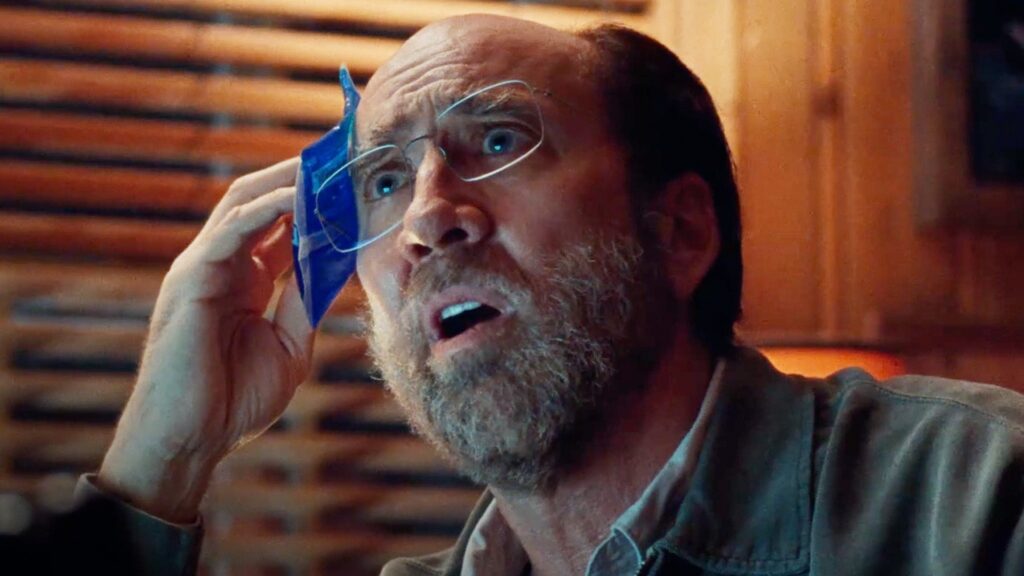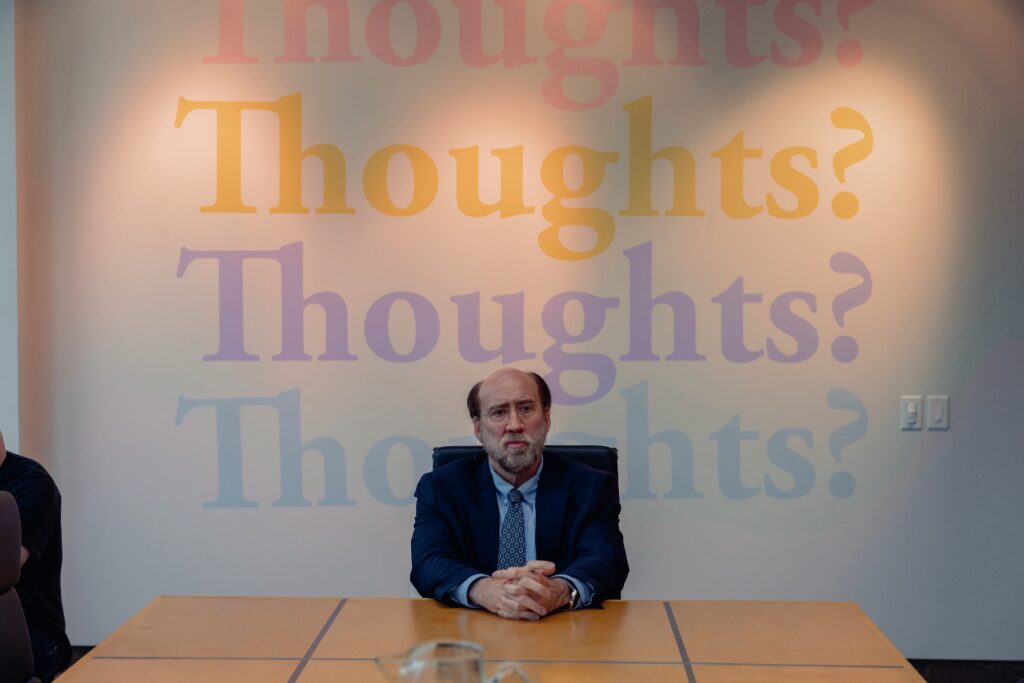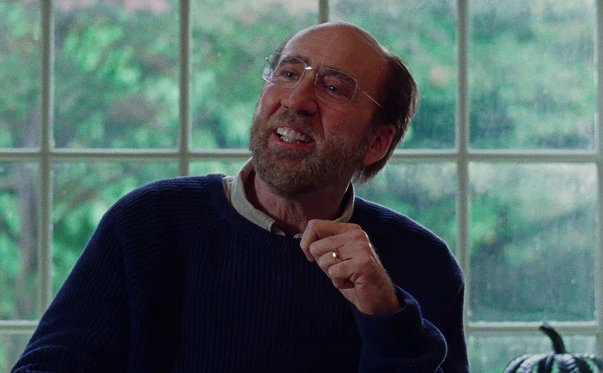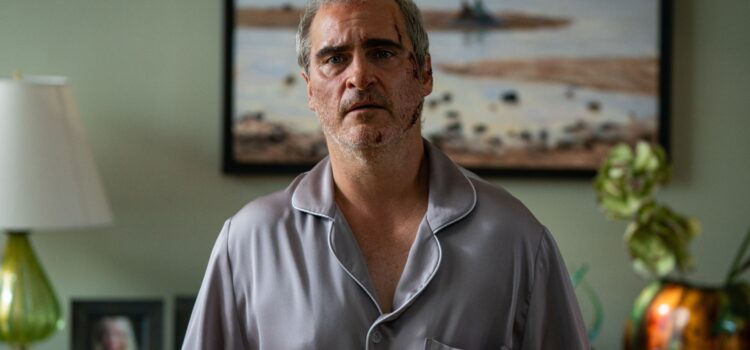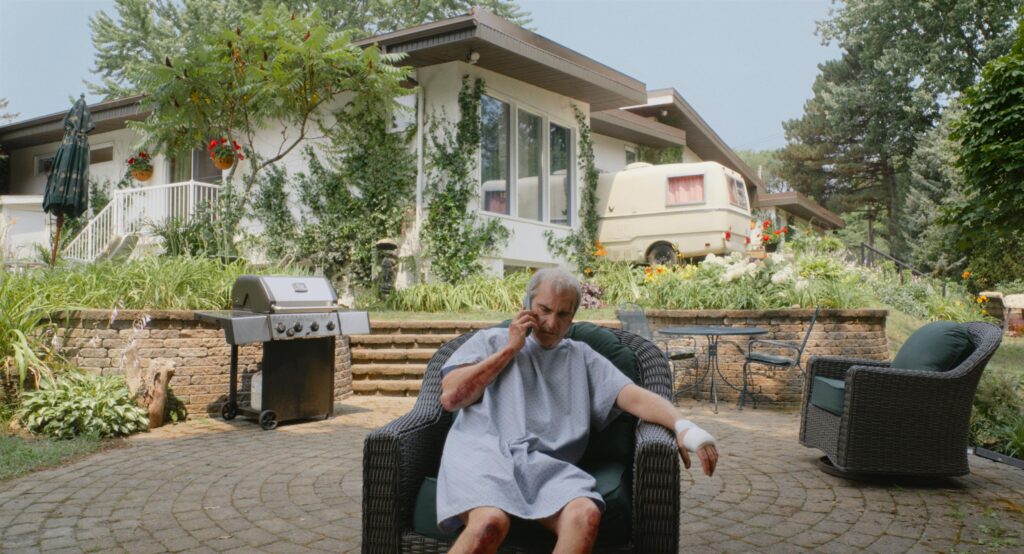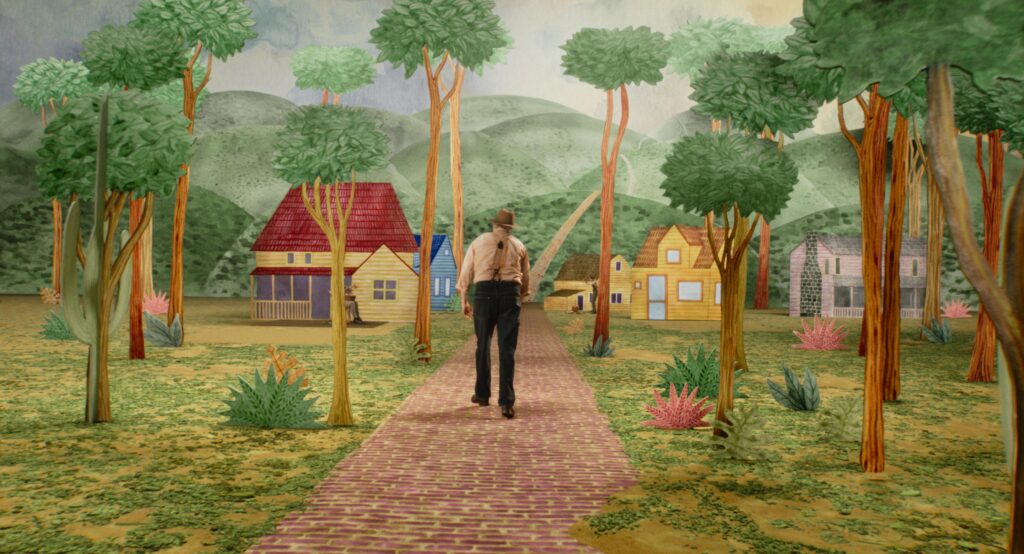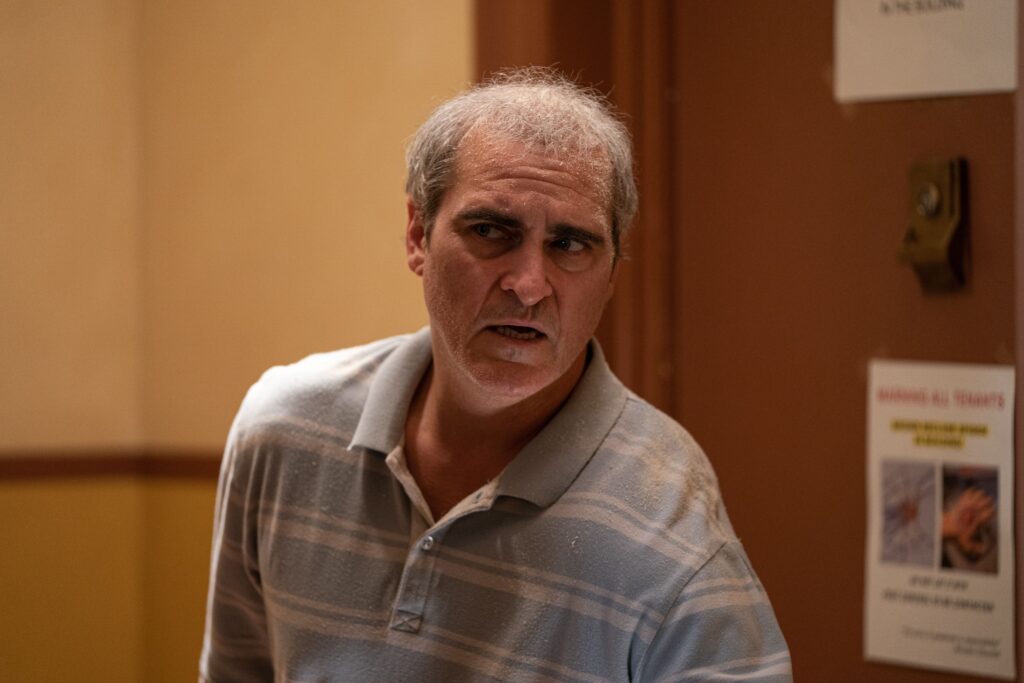By Lynn Venhaus
“Beau Is Afraid” is an unwatchable exercise in excess.
This absurdist black comedy-drama-horror about an anxiety-riddled man-child going through personal crises makes a mockery of the real psychological issues on display, Why is any of this funny when it should be a tragedy?
Writer-director Ari Aster has created a self-indulgent, meandering narrative that straddles reality and fantasy in a very bizarre way, designed to shock like his other works – “Midsommar” and “Hereditary.” These two polarizing films were disturbing with extreme horrific violence.
The rambling story follows the sudden death of Beau’s mother, which sets off a chain of events, as he embarks on a Kafkaesque odyssey back home that manifests his darkest fears. It appears to be a sequence of nightmares strung together in such an incoherent fever-dream way that the film becomes unbearable during its ridiculous 2 hours, 59 minutes runtime. It is no clearer at the end than it was in the beginning.
Joaquin Phoenix is hardly at his best in this ill-suited role as the arrested development afraid-of -his-own-shadow recluse, Beau, who is in serious mental distress and is either in a catatonic stupor or having major panic attacks and meltdowns in public places.
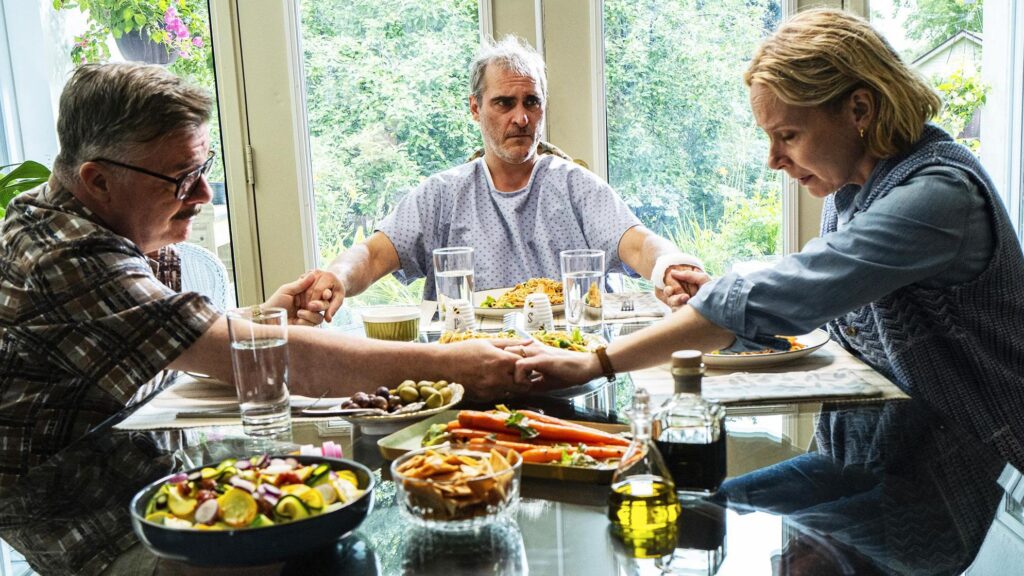
And neither are the actors playing the peculiar-agenda grown-ups – the normally dandy Nathan Lane and Amy Ryan as affluent strangers who rescue him during an assault, and their chic home is where he recuperates in a captive-like situation. Their Good Samaritan effort seems tinged with menace, but they are no Annie Wilken in “Misery.” However, their Fun House is anything but, particularly with their deranged daughter Toni (Kylie Rogers) and a soldier suffering from PTSD, Jeeves (Denis Pinochet).
Not unlike Lewis Carroll’s whacked-out writing in “Alice in Wonderland,” Aster strings us along with poorly drawn characters attempting to make sense of a script that has no point except to be weird for weirds sake.
However, Armen Nahapetian is fine as the sad and confused teenage Beau, who is schooled about life by a forward girl, Elaine, during a summer vacation – and so is Julia Antonelli as Beau’s first crush. As his young over-sharing histrionic control freak mother, Zoe Lister-Jones is Mona then. Patty LuPone is his monstrous, neurotic mother later in life.
In minor roles are Bill Hader as a UPS guy, Parker Posey as Elaine Bray, who works for his mom, Stephen McKinley Henderson as a therapist, and Richard Kind as a doctor.
The random bursts of violence are upsetting and the shouting, screaming and the maniacal behavior unsettling. Imagined demons roam, Beau is either terrified or trembling, and the paranoia is rampant.
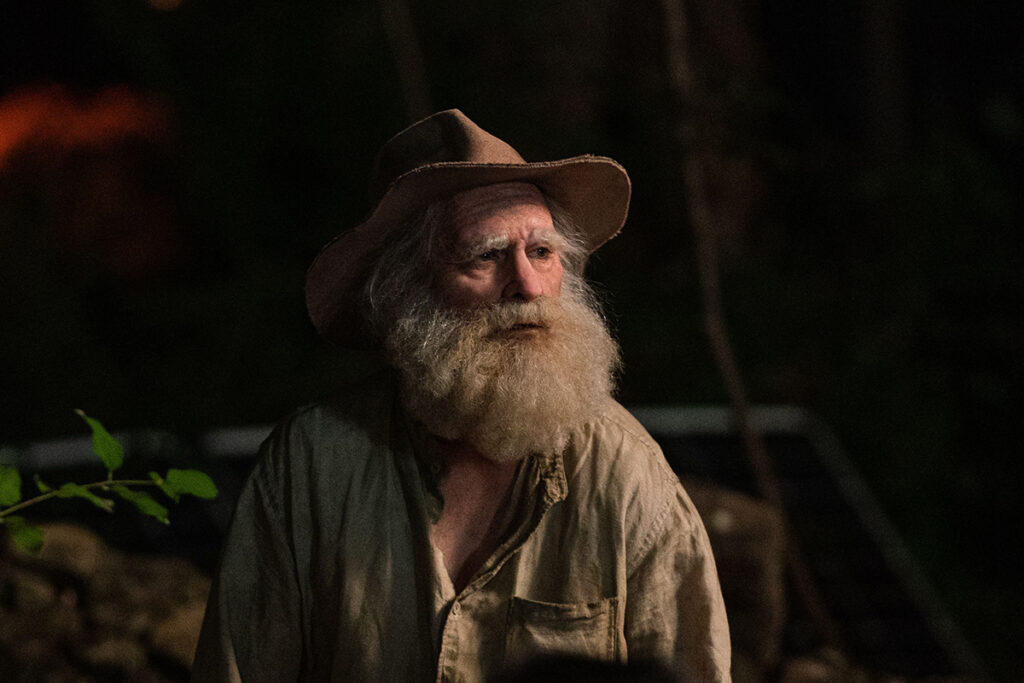
We’ve seen a wide array of movies where people spiral out of control because of their less-then-normal upbringing or society’s pressures, but this scenario is not cohesive in the least and mostly incoherent.
In Aster’s world, rules of form, function and ordinary behavior are thrown out the window in favor of a provocateur making a meal out of what’s in the fridge. This is jump-out-of-the-closet scares and off-the-charts anxiety that can actually trigger viewers.
This is someone’s therapy session that we should not be eavesdropping on, and all the mommy and daddy issues raised won’t be solved any time soon. Why should anyone care about these people?
“Beau Is Afraid” is a 2023 comedy-drama-horror film written and directed by Ari Aster and starring Joaquin Phoenix, Nathan Lane, Amy Ryan, Parker Posey, Stephen McKinley Henderson, Kylie Rogers, and Patti LuPone. It is rated R for strong violent content, sexual content, graphic nudity, drug use and language. Its runtime is 2 hours, 59 minutes. It opened in theatres on April 21, is available video on demand and DVD, and began streaming Dec 1 on Showtime/Paramount+. Lynn’s grade: F.


Lynn (Zipfel) Venhaus has had a continuous byline in St. Louis metro region publications since 1978. She writes features and news for Belleville News-Democrat and contributes to St. Louis magazine and other publications.
She is a Rotten Tomatoes-approved film critic, currently reviews films for Webster-Kirkwood Times and KTRS Radio, covers entertainment for PopLifeSTL.com and co-hosts podcast PopLifeSTL.com…Presents.
She is a member of Critics Choice Association, where she serves on the women’s and marketing committees; Alliance of Women Film Journalists; and on the board of the St. Louis Film Critics Association. She is a founding and board member of the St. Louis Theater Circle.
She is retired from teaching journalism/media as an adjunct college instructor.

